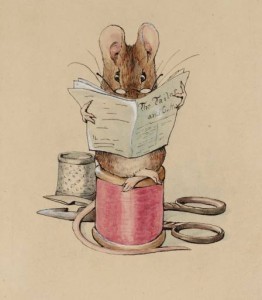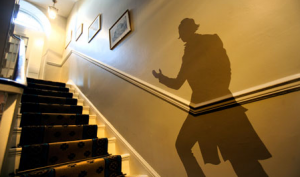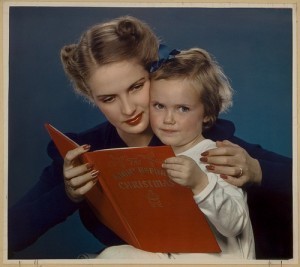The Paris Review's Blog, page 866
December 10, 2012
Kafka’s Mice, and Other News
In a match made in fun, fearless, female heaven, Harlequin and Cosmo are producing a line of e-books.
Feel like writing your own erotica?
The intersection of Fifth and Flower Streets in downtown Los Angeles is now Ray Bradbury Square.
An interactive art installation encourages participants to fill empty books.
We can add nothing to this description: “A letter from Franz Kafka in which the sick writer describes his ‘naked fear’ of mice invading his bedroom and complains about his cat soiling his slippers could be saved from disappearing into a private collection in a last-minute rescue attempt by German fans.”
December 7, 2012
Mike McCormack, Galway City, Ireland
A series on what writers from around the world see from their windows.

I have lived in this house on the edge of Galway City for over five years now and for a couple of hours a day I sit with my feet up on the window sill and look out over this cul-de-sac. And no matter what time of day I sit here it always seems to be the middle of the afternoon. The place is constant, not given to mood swings or tantrums, just that tree and the sweep of tarmac which curves along by the green, nothing much to hold the eye or interest. Of course this is precisely the kind of stillness in which the mind’s eye gets lost—vista as vortex. From time to time the stillness is broken up by a car or a child or a stray dog crossing the green. Sometimes a ball rolls into view. These are all quietly interesting but sooner or later they meld into the stillness of the place.
Today it’s raining—patient, steady rain which will keep falling into the night. That’s December rain, nothing new or unusual about it. Beyond the rooftops the sky has lowered down in heavy grey folds. Two years ago we had snow here for the first time, and for nearly a month the whole place was blanketed in soft whiteness. And while snow added little to the stillness of the place, for a short while it looked like it was elsewhere. —Mike McCormack
What We’re Loving: Captain Kentucky, John Henry, Plagues
I picked up Barbara Comyns’s Who Was Changed and Who Was Dead when it was first reissued in 2010 but then had to put it aside. I began it again—and finished it—last week, and I’m so glad I did. The novel, originally published in England in 1954, concerns the Willoweed family and their reactions to an outbreak of madness and suicide in their small village. Its humor is by turns black and light, its characters morbid and delightful. An aberrant pastoral as smart as this one could only come from someone with a biography as nutty and wonderful as Comyns’s. A painter by training—she exhibited with the London Group—Comyns married and had two children. To support them, “she dealt in antiques and vintage cars, renovated apartments, and bred poodles. She later lived in Spain for eighteen years.” —Nicole Rudick
Brain still humming with Elaine Blair’s brilliant essay on David Foster Wallace, I read his own long 1990 review of Wittgenstein’s Mistress, now reprinted in Both Flesh and Not. So much has been written about Infinite Jest, but for me these two essays together do the best job of describing what’s at stake in that novel—morally, philosophically, artistically. Among other things, Wallace reveals his debt to Stanley Cavell (a teacher whose influence he later played down) and his raw-nerved engagement with feminist criticism. At times, too, “The Empty Plenum” reads like a sort of preemptive rebuttal to Jonathan Franzen’s elegy in The New Yorker. Wallace may not have been the sage we wished for, but as Blair writes, he “worked a reverse-Promethean theft, taking our humble spoken idioms and delivering them to the gods.” —Lorin Stein
William Styron in Letters, Part 5
To George Plimpton
December 1, 1953 Ravello, Italy
Dear George:
Herewith the interview, revised and expanded. I think that in the future it might be a good idea for you to get a tape-recorder for these darn things, because it’s a bitch of a job for the interviewee to edit his own words. Now you will note that I did not completely eliminate all the first part; as a matter of fact I retained the bulk of it, but made quite a few changes and emendations. I think it’s better now, certainly printable. Besides all the additions, you will notice I made a few eliminations. I cut out a few of the cuss-words, which were all too abundant. I cut out the cracks against little Truman and Anthony West, who God knows deserves them, but they seemed a little in poor taste. I also tempered my criticism of Faulkner. I have tried to keep the tone impersonal and conversational throughout, and I think that I’ve succeeded.
You will notice, too, that I’ve taken your suggestion and have added quite a bit toward the end. I hope you will find the questions—some of which are yours—and answers suitable; at least the piece is considerably lengthened, and I’ve gotten off my chest a few things I’ve wanted to say. One important thing is that I think you must somehow invent a little atmosphere to surround the piece. It’s mighty bare without any stage directions, and I think if you place the thing right where the original interview started, in the Café Select, or some equivalent, it will provide a suitably bibulous background.
The Dickens Museum, and Other News
“The Dickens Museum felt for many years a bit like Miss Havisham, covered in dust.” After an extensive renovation, the London home where Charles Dickens lived as a newlywed has reopened to the public.
“Maintain low financial expectations.” One author reveals his earnings.
Capitalism and socialism were Merriam-Webster’s most looked-up words of the year. But malarkey had a strong showing, too!
Authors choose their favorite illustrations.
Oh dear: Are we in the midst of a reading crisis?
December 6, 2012
The Making of Motherwell
If you love beautiful books, check out this marvelous video from the Dedalus Foundation, in which we see the production of Robert Motherwell Painting and Collages: A Catalogue Raisonné, 1941–1991.
F. Scott Fitzgerald, Lyricist
About ten years ago, after depositing my brother at camp, my parents found themselves in a junk shop in upstate New York. My dad came upon the following playbill for The Evil Eye: A Musical Comedy in Two Acts, presented by the Princeton University Triangle Club from 1915 to 1916. He opened the first page and noticed the following: “Book by Edmund Wilson, Jr., 1916,” and, a bit further down, “Lyrics by F. Scott Fitzgerald, 1917.” Numbers like “Jump Off the Wall” and “Harris from Paris” may be lost to history, but we thought we’d share the program with you nevertheless!
And Everywhere That Mary Went
On December 6, 1877, Thomas Edison made one of the first recordings of the human voice, a phonograph recording of “Mary Had a Little Lamb.” Below, Edison recites the nursery rhyme.
This was not Mary’s sole claim to fame. The nursery rhyme, written by Sarah Josepha Hale and published in Boston in 1830, was inspired by the story of a young girl named Mary Sawyer, who had an inseparable pet lamb. The tune was added shortly thereafter. To this day, a statue of Mary and her lamb stands in the town center of Sterling, Massachusetts.
William Styron in Letters, Part 4
To George Plimpton
September 18, 1953 Ravello, Italy
Dear George:
Last night I did something which I only do once or twice in a generation: I stayed up all night with a bottle of Schenley’s and watched the dawn. That sort of thing is a perverse, masochistic business and at around 9 A.M. I was entertaining the idea of writing two or three novels before I went to bed, but oblivion closed in an hour later, and I just woke up. It is now almost sunset. This is mainly by way of saying that if this letter doesn’t have a Chesterfieldian elegance + grace you will at least have been apprised of the reason.
My main reason for writing this letter is one-fold, I have been forced down certain channels of contemplation by a recent communiqué from John (“The Second Happiest Day”) Phillips, to use current journalese. Primarily, I was interested in his remarks about a Hemingway issue of PR; and I think at this point and without further ado I can shoulder my burden as advisory editor of the snappiest little mag on the Rive Gauche and say that I think it’s a great idea. Peter and THG apparently (according to Marquand) are not so enthusiastic about the proposition; as for me I think that if you really have enough interesting, fresh material in the offing (it must be interesting, fresh, original, and there must be quite a bit of it) then it might be one of the literary coups of all time. As Marquand said, print the word Hemingway in neon all over each page and both covers. Anything goes. Read More »
Scary Children Reading, and Other News
Even terrifying people love books.
“A bedbug had crawled out of a copy of True Blood while she was reading it.” When library books get bedbugs.
“It is awful to think I’ll probably be regarded as some sort of authority on Brazil the rest of my life.” Benjamin Moser on Elizabeth Bishop and her adopted homeland.
Might selling used books become illegal?
“Al and the TAs are like reality-show TV contestants: regular people who suddenly have a huge audience.” Elliott Holt takes an online literature course.
The Paris Review's Blog
- The Paris Review's profile
- 305 followers















